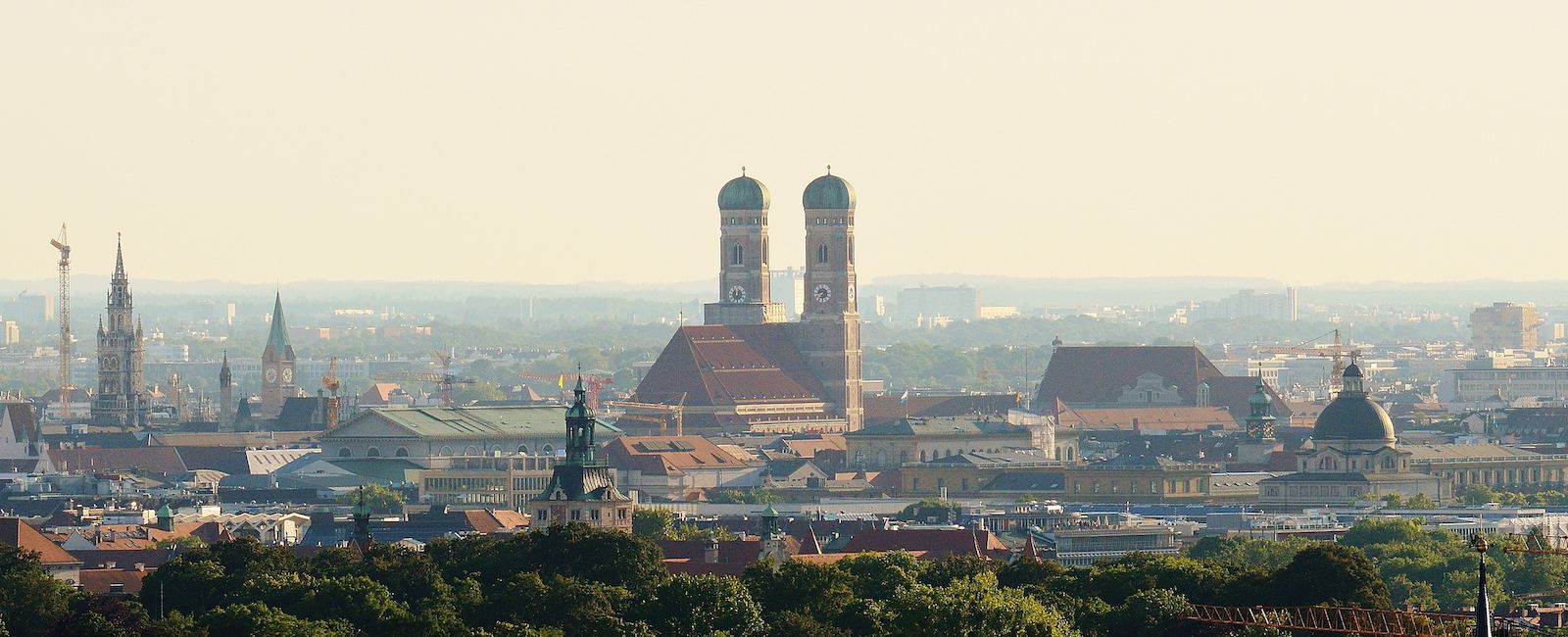Planning a trip to Bavaria? You’re in for a treat! This German region is brimming with picturesque landscapes, historical sites, and cultural treasures. From the vibrant cities of Munich and Nuremberg to the fairy-tale castles and the serene Alpine scenery, Bavaria has something for every traveler. Here’s a comprehensive guide to planning your Bavarian adventure from A to Z.
A – Arrival
The best way to arrive in Bavaria is by flying into Munich Airport (MUC), one of Europe’s busiest and most well-connected airports. From there, you can easily access the rest of Bavaria by train, bus, or rental car. Another option is Nuremberg Airport (NUE), especially if your itinerary focuses on northern Bavaria.
B – Best Time to Visit
Bavaria is a year-round destination, but the best time to visit depends on your interests. Spring (April to June) and fall (September to October) offer mild weather and fewer tourists. Summer (July to August) is perfect for outdoor activities and festivals, while winter (December to February) is ideal for skiing and Christmas markets.
C – Castles and Palaces
No trip to Bavaria is complete without visiting its stunning castles and palaces. Neuschwanstein Castle, built by King Ludwig II, is a must-see. Other notable castles include Hohenschwangau, Linderhof, and the Würzburg Residence. Each offers a glimpse into Bavaria’s royal past.
D – Driving
While Bavaria’s public transportation is excellent, renting a car gives you the freedom to explore at your own pace. The Romantic Road, a scenic route through medieval towns and beautiful countryside, is perfect for a road trip. Remember to drive on the right and familiarize yourself with German traffic rules.
E – Events and Festivals
Bavaria is known for its lively festivals. Oktoberfest in Munich is the most famous, attracting millions of visitors each year. Other notable events include Nuremberg’s Christmas market, Regensburg’s Dult, and the Augsburg Plärrer. These festivals offer a unique insight into Bavarian culture and traditions.
F – Food and Drink
Bavarian cuisine is hearty and delicious. Don’t miss trying Weisswurst (white sausage), Schweinshaxe (pork knuckle), and pretzels. For dessert, enjoy a slice of Apfelstrudel or a Bavarian cream. Beer lovers will be in heaven, as Bavaria is home to some of the world’s best breweries. Visit a traditional beer garden for an authentic experience.
G – Guided Tours
Consider taking guided tours to make the most of your visit. Local guides offer valuable insights into the history, culture, and hidden gems of Bavaria. Whether it’s a city tour in Munich, a castle tour in Füssen, or a walking tour in Bamberg, these experiences can enrich your trip.
H – Hiking and Outdoor Activities
Bavaria’s natural beauty is perfect for outdoor enthusiasts. The Bavarian Alps offer excellent hiking, skiing, and snowboarding opportunities. The Berchtesgaden National Park is a paradise for nature lovers, with its stunning landscapes and pristine lakes. In summer, enjoy cycling along the Danube River or swimming in the many lakes.
I – Itinerary Planning
Planning your itinerary in advance is crucial to make the most of your time in Bavaria. Start with the major cities like Munich and Nuremberg, then explore the smaller towns and countryside. Allocate time for day trips to places like Neuschwanstein Castle, the Bavarian Forest, and the Franconian wine region.
J – Journey by Train
Traveling by train in Bavaria is convenient and scenic. The Deutsche Bahn (DB) operates an extensive network connecting major cities and towns. The Bayern Ticket offers unlimited travel on regional trains for a day, making it a cost-effective option for exploring the region.
K – Kids and Family Travel
Bavaria is a family-friendly destination with plenty of activities for kids. Visit the LEGOLAND Germany Resort, the Playmobil FunPark, or the Munich Zoo. Many castles and museums also offer special tours and programs for children, ensuring a fun and educational experience.
L – Language
While German is the official language, English is widely spoken in tourist areas. However, learning a few basic German phrases can enhance your travel experience and help you connect with locals. Phrases like “Guten Tag” (Good day), “Bitte” (Please), and “Danke” (Thank you) are always appreciated.
M – Museums and Cultural Sites
Bavaria is rich in history and culture, with numerous museums and cultural sites to explore. The Deutsches Museum in Munich is the world’s largest science and technology museum. Nuremberg’s Imperial Castle and the Documentation Center Nazi Party Rally Grounds provide deep insights into Germany’s history. Don’t miss the Bavarian National Museum for a comprehensive look at the region’s art and cultural heritage.
N – Nature Reserves and Parks
Bavaria boasts several nature reserves and parks that offer a tranquil escape from the bustling cities. The Bavarian Forest National Park, with its dense forests and wildlife, is ideal for hiking and wildlife spotting. The Altmühl Valley Nature Park features dramatic rock formations and picturesque valleys, perfect for outdoor adventures.
O – Oktoberfest
If your visit coincides with Oktoberfest, you’re in for a treat. Held in Munich, this world-renowned beer festival features traditional music, hearty Bavarian food, and, of course, plenty of beer. Be sure to book your accommodations well in advance, as the festival attracts millions of visitors.
P – Public Transportation
Bavaria’s public transportation system is efficient and reliable. Munich’s U-Bahn (subway) and S-Bahn (commuter train) networks are extensive, making it easy to get around the city. Buses and trams also provide convenient options for short-distance travel. For longer trips, regional trains connect towns and cities across Bavaria.
Q – Quaint Villages
Beyond the major cities, Bavaria is dotted with charming villages that offer a glimpse into traditional life. Visit Rothenburg ob der Tauber, a beautifully preserved medieval town, or the picturesque village of Mittenwald, known for its colorful houses and alpine backdrop. These villages provide a peaceful retreat and a chance to experience Bavarian hospitality.
R – River Cruises
Consider taking a river cruise along the Danube River to see Bavaria from a different perspective. These cruises offer a relaxing way to explore historic cities, quaint towns, and stunning landscapes. Stops often include Regensburg, Passau, and Vilshofen, each with its unique charm and history.
S – Shopping
Bavaria offers excellent shopping opportunities, from luxury boutiques in Munich to traditional craft shops in small towns. Don’t miss the Viktualienmarkt in Munich for fresh produce and local delicacies. For unique souvenirs, visit Nuremberg’s Handwerkerhof, where artisans sell handmade crafts and goods.
T – Traditional Music and Dance
Bavarian culture is deeply rooted in its traditional music and dance. Attend a folk music performance or a Schuhplattler dance show to experience this vibrant aspect of Bavarian life. Many festivals and beer gardens feature live music, providing an authentic cultural experience.
U – UNESCO World Heritage Sites
Bavaria is home to several UNESCO World Heritage Sites, each offering a unique glimpse into the region’s history and culture. The Würzburg Residence, Bamberg’s old town, and the Pilgrimage Church of Wies are must-visit sites. These landmarks showcase Bavaria’s architectural and cultural heritage.
V – Vineyards and Wine Tasting
While Bavaria is famous for its beer, it also has a thriving wine culture. The Franconian wine region, centered around Würzburg, is known for its high-quality white wines, particularly Silvaner. Visit local vineyards for wine tasting and tours to learn about the region’s winemaking traditions.
W – Walking Tours
Walking tours are a fantastic way to explore Bavarian cities and towns. Guided tours in Munich, Nuremberg, and Regensburg offer insights into the history and culture of these cities. Self-guided walking tours are also a great option, allowing you to explore at your own pace.
X – X-tras
Don’t forget the extras that can enhance your travel experience. Consider purchasing a Munich City Pass for discounts on attractions and public transport. Travel insurance is also recommended for peace of mind. Finally, pack comfortable shoes for all the walking and exploring you’ll be doing.
Y – Year-Round Activities
No matter the season, there’s always something to do in Bavaria. In winter, enjoy skiing and snowboarding in the Alps or visit the magical Christmas markets. Spring and summer are perfect for hiking, cycling, and enjoying outdoor festivals. Fall brings beautiful foliage and harvest festivals.
Z – Zzzz… Accommodation
Bavaria offers a wide range of accommodation options to suit every budget and preference. From luxury hotels and charming guesthouses to budget hostels and holiday apartments, you’ll find the perfect place to rest after a day of exploring. Book in advance, especially during peak seasons and festivals, to ensure the best availability and rates.
Conclusion
Planning a trip to Bavaria from A to Z ensures you cover all the essentials for an unforgettable experience. With its rich history, stunning landscapes, and vibrant culture, Bavaria promises a travel adventure like no other. So pack your bags, grab your itinerary, and get ready to explore the heart of Germany. Safe travels!


